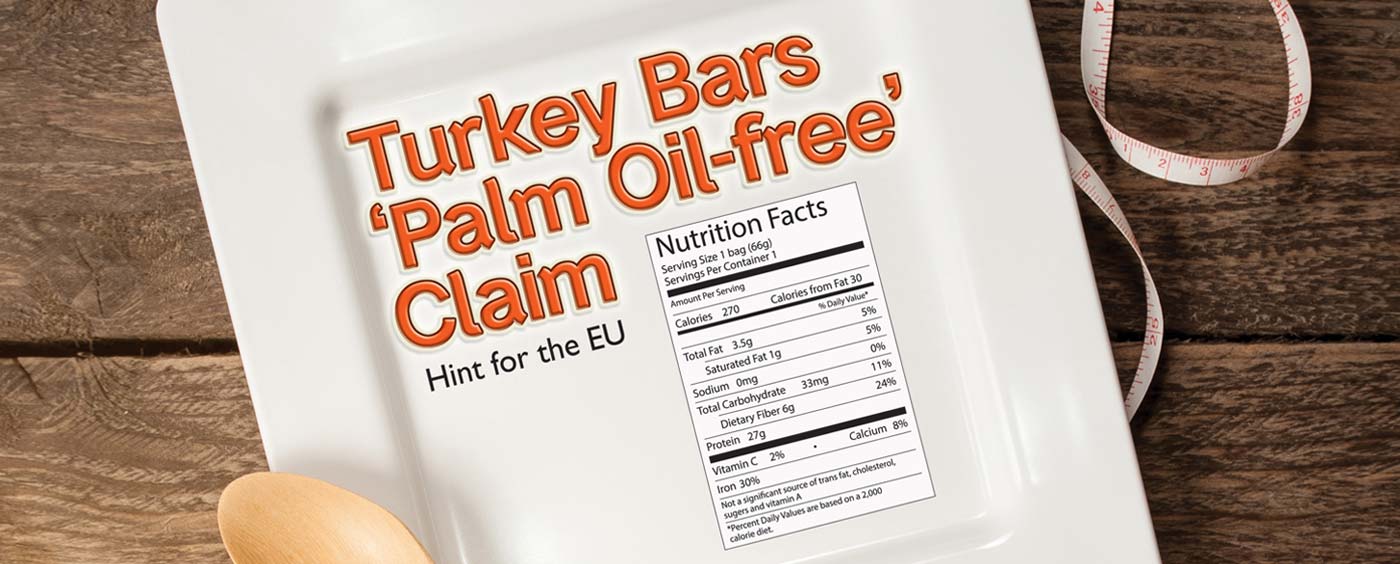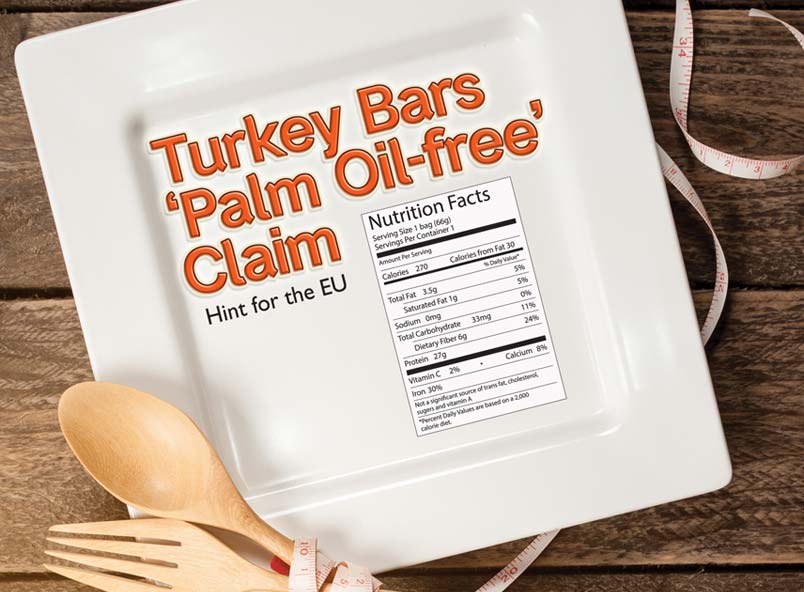



A guidance note on food labelling in Turkey expressly states that the ‘palm oil-free’ claim is illegal. The guidance for the food industry, prepared by the government, is of great interest regarding the notorious ‘palm oil-free’ claim commonly used in many EU member-states.
Turkey’s interpretation should be seen as an important hint in the direction of EU authorities that continue to ignore the illegal, anti-competitive and misleading labelling of food products carrying the ‘palm oil-free’ claim.
The government of Turkey had published the updated Food Codex Regulation on Labelling in the Official Journal on Jan 26, 2017. Last July, after collaborating with different food industry associations and food business operators for more than three years, the Ministry of Food, Agriculture and Livestock of Turkey published a guidance note entitled ‘Turkish Food Codex: Guidance on Food Labelling and Consumer Information Regulation’, which interprets the updated labelling rules.
The updated Food Codex Regulation on Labelling and the related guidance are part of Turkey’s efforts to bring its food law in line with EU law. Turkey has been a candidate-country since 1999. Accession negotiations started on Oct 3, 2005.
A revised Accession Partnership was adopted in 2008 and established the principles, priorities and conditions for accession negotiations. Under Chapter 12 on ‘Food safety, veterinary and phytosanitary policy’, Turkey committed to adopt a framework on food, feed and veterinary matters compliant with EU requirements and allowing for a complete transposition of the so-called ‘acquis’, the body of EU law.
In this context, the Turkish Food Codex Regulation on Labelling is particularly relevant. Article 50(1) states: ‘This Regulation has been prepared in accordance with the legislation of the European Parliament, taking into consideration the Regulation (EC) No. 1169/2011 of the European Parliament and of the Council of [Oct] 25, 2011 on the provision of food information to consumers’ (also known as the Food Information Regulation, FIR).
 Ahead of the EU
Ahead of the EU
In an innovative and forward-thinking manner, the Turkish Food Codex Regulation on Labelling and the guidance note address matters that have not yet been agreed at the EU level. This concerns, in particular, specific rules on declarations on the absence of food ingredients and rules on the establishment of so-called nutrient profiles.
Particularly relevant to the infamous ‘palm oil-free’ claim is Article 7(1)(c) of the Turkish Food Codex Regulation on Labelling. It states: ‘Informing about food cannot be misleading, in particular by claiming that a particular food has special qualities, in particular, by highlighting the presence or absence of certain ingredients and/or nutrients, when all similar foods have the same qualities.’
This provision implements Article 7(1)(c) of the FIR on fair information practices, which provides that food information must not be misleading, particularly ‘by suggesting that the food possesses special characteristics when in fact all similar foods possess such characteristics, in particular by specifically emphasising the presence or absence of certain ingredients and/or nutrients’.
Article 7(1)(c) of the FIR further addresses the legal concept of misleading advertisements with certainties (i.e. ‘obvious’, ‘self-evident’ and ‘flagrantly misleading’ advertising), which has been so far mostly applied in cases of the so-called ‘clean’ labelling. Clean label claims, such as ‘additives-free’ or ‘free from preservatives’, may only be made as long as they are true and the use of additives in such foods is legal.
Since Dec 13, 2014, the FIR has required the specific vegetable oils to be indicated in the list of ingredients. Listing the generic indication ‘vegetable oils’ is no longer sufficient. Now that the specific origin of the vegetable oil must be declared, the ‘palm-oil free’ claim has become irrelevant and illegal. It is also misleading because it gives consumers the impression that food products carrying the claim have special properties that other similar foods do not.
The Turkish guidance note expressly spells out that claims such as ‘palm oil-free’ and ‘no glucose syrup’ are prohibited. The aim of the guidance is to protect consumers from being misled and to help food business operators to comply with the updated rules on food labelling that ban terms such as ‘real’ or ‘genuine’ and prevent firms from making certain claims like ‘no palm oil’. The same restrictions apply to claims used in English that are generally recognisable by consumers, such as ‘original’ or ‘natural’.
The most relevant part of the guidance on certain terms and expressions used on food labels in private practice reads as (unofficially translated):
(3) Other Negative and Positive Statements
1. Declarations on the absence of food ingredients (‘… contains no …’) other than those specified in this guideline cannot be used. Examples: ‘Sunflower oil-free’; ‘Does not contain glucose syrup’; Palm oil-free’, etc. These expressions cannot be used.
Since the guidance note implements the FIR, it should arguably not be a challenge for European food exporters to comply when supplying the Turkish market. However, EU member-states and the European Commission (EC), in their guidance to the FIR, have unfortunately not gone as far as Turkey in explicitly noting that ‘palm oil-free’ or ‘no palm oil’ claims cannot be made. Some EU food business operators might have to change their labelling to bring it into compliance with the Turkish rules and their interpretation provided in the guidance.
Pages : 1 2